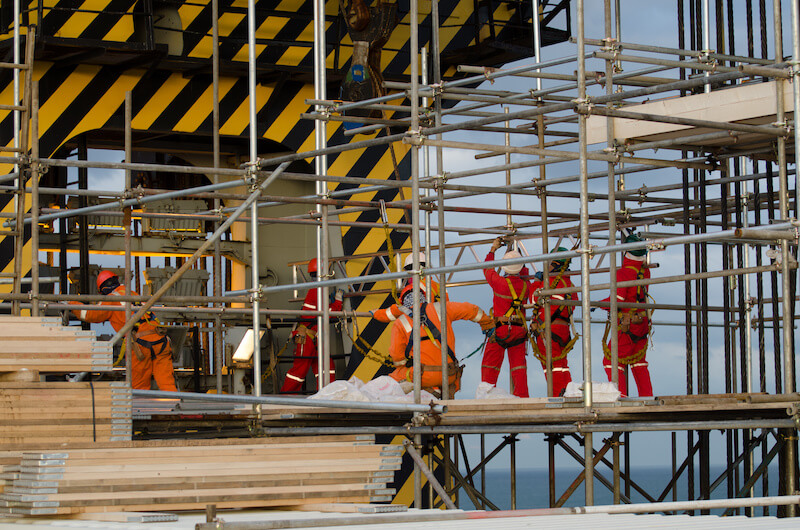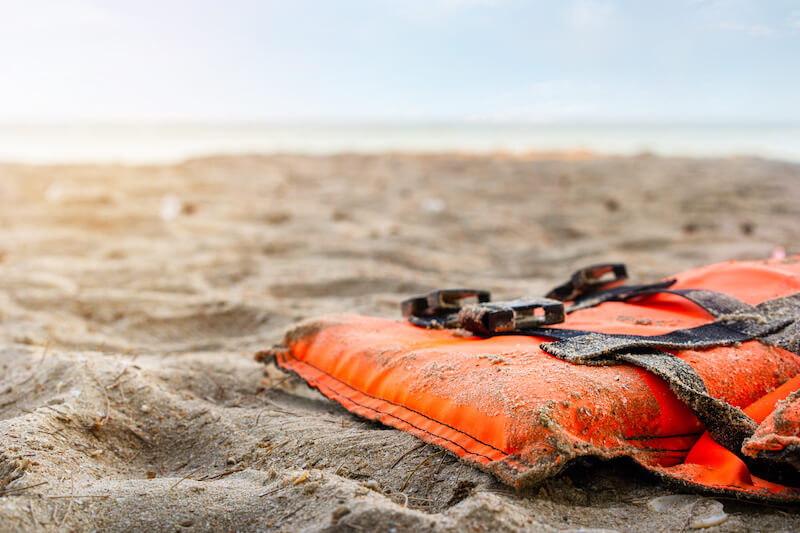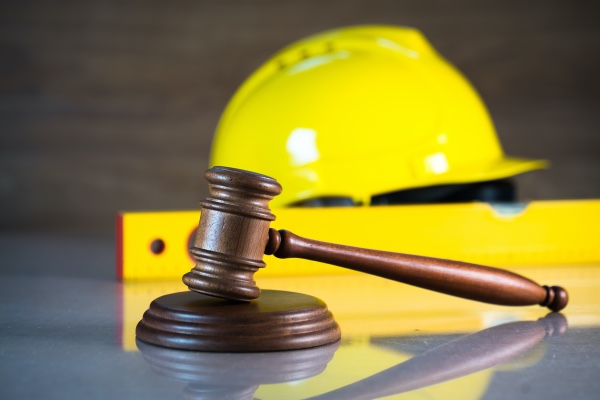
People who work offshore jobs understand that while the wide open ocean is beautiful, it is also dangerous. Not only can inclement weather pop up without a moment’s notice, but the highly combustible materials people offshore work with, slippery decks, and heavy equipment create the perfect storm for accidents to happen. These accidents often lead to serious or life-threatening injuries.
Because of these conditions, the Texas State government and the United States government have strict guidelines as to the condition of oil rigs and other offshore jobs. Protecting these workers by giving them better tools, training, and safer work environments is one way to ensure that these operations can continue as safely as they can. However, when employers ignore these guidelines and regulations, accidents can occur, leaving the injured employee/employees in a world of hurt and facing a long road to recovery.
If you or a loved one was injured in an offshore injury accident, you will want the guiding hand of an experienced offshore injury attorney to help you get the compensation you deserve to cover medical expenses and damages. The Hernandez Law Group, P.C. has been Dallas, Abilene, and Amarillo’s trusted offshore injury attorney since our founding in 1999. Here is more information on how we can help you get your life back on track after an offshore accident.
Understanding Offshore Injuries: Your Legal Rights in Texas

As mentioned earlier, the open ocean is one of the most dangerous workplaces on the planet. The United States maritime industries employ well over 400,000 workers across the U.S. The State of Texas ranks number three for having the most individuals working maritime industry jobs. Currently, 56,290 Texans work for the domestic maritime industry, which contributes more than $14.3 billion to the Texas economy every year. These employees can be found working in a variety of different fields, such as:
- Shipyards
- Marine terminals
- Fishing
- Aquaculture
- Seafood processing
- Commercial diving
- Marine transportation
- Offshore oil rigs
The Centers for Disease Control reports that Texas has the highest number of severe injuries to Oil and Gas Extraction (OGE) workers than anywhere else in the U.S. This includes injuries from offshore oil rigs. Combined with the other maritime industries on this list, it is no stretch of the imagination that offshore workers face a higher injury, fatality, and illness rate than the average American worker.
Types of Offshore Injuries and Accidents
A wide range of accident types can happen offshore. From slip and fall accidents due to slick conditions, equipment failures, collisions, fires, and accidents caused by unsafe work practices, offshore accidents often occur without warning. They are also most commonly caused by the negligence of the employer or another employee on the rig. The aftermath of these accidents is often horrific, with catastrophic and life-altering injuries, leaving the injured worker unable to return to work. They may also have a harder time finding a job in the future due to the severity of their injuries, leaving them scrambling for a way to support themselves and their families.
Common injuries from offshore accidents include the following:
- Traumatic brain injuries
- Spinal cord injuries
- Back injuries
- Loss of hearing
- Loss of limbs
- Lacerations
- Broken bones
- Sprains
- Lung damage
- Fire and burn Injuries
- Wrongful death
What Laws Protect Offshore Workers?
As mentioned before, a wide range of laws and regulations protect offshore workers and improve their working conditions as well as provide avenues for compensation after an accident. These laws are as follows:
Harbor Workers Compensation Act: This law is extended to land-based maritime workers, including those who are involved in the loading and off-loading of sea vessels as well as shipbuilders. This law protects a worker’s right to see compensation for injuries that were sustained while on the job. This act generally applies to longshore and harbor workers, but the provisions have been extended to include certain areas of offshore work, as long as that work takes place near the harbor.
Outer Continental Shelf Lands Act (OCSLA): This law only covers workers involved in the research and development of natural resources, typically oil, on the outer continental shelf. If an oil rig worker operating on a fixed platform gets into an accident, then this law provides them an avenue in which they can claim monetary compensation to cover injuries and damages.
Jones Act: The Jones Act, also known as the Merchant Marine Act, is beneficial for seamen who have suffered an offshore injury due to the negligence of their employer, a co-worker, or the owner of the vessel. Under the Jones Act, these workers, including oil rig workers, are entitled to sue their employer for damages related to their injury.
What Steps Should I Take Following an Offshore Injury?

Injuries that occur on an offshore oil rig can be extremely traumatic and life-altering events. It is important to understand your legal rights and what steps should be taken immediately following an offshore accident to ensure that you can claim the compensation you deserve. Here is what our Offshore Accident Attorneys at the Hernandez Law Group, P.C. recommend:
- Immediately notify key parties about the accident. Injured workers need to alert their employer and any appropriate governmental authorities about the accident. Under federal law, all offshore operators must report occupational injuries and fatalities that result in lost work time to the Bureau of Safety and Environmental Enforcement (BSEE) within two days of the incident.
- Document the details of the accident. If you or another coworker can, create documentation about the accident. This should include:
- Photos of the injuries/damage
- Photos of the cause of the accident, if it was a faulty piece of heavy equipment
- Photos of where the accident took place
- A written record of what happened and at what time
- Witness statements and contact information
- Insurance information from the parties involved
- Seek out medical attention: Even if you feel okay after the accident, still get a medical checkup. Adrenaline from the accident can cover up worse symptoms or pain. Even minor injuries or aches can be indicative of a larger issue. A medical professional can give you a full exam and treat any injuries you may have promptly. It also creates a paper trail of your injuries and proposed treatment options so that you can get compensated properly.
- Contact an experienced offshore injury attorney: It can be tricky to navigate the complex legal and insurance issues following an offshore accident. This will require trusted guidance from an offshore injury attorney who is well-versed in maritime law. They will be your best advocates and resource to ensure that a proper investigation, preservation of evidence, and determination of the liable party are made.
How Our Dallas Offshore Injury Attorneys Can Assist You

If you or a loved one has been injured in an offshore accident, it is critical that you seek out an experienced offshore accident attorney. The Hernandez Law Group, P.C. has helped countless victims of personal injury accidents get the compensation they deserve to cover damages and medical expenses. Our skilled litigators will be more than happy to handle your case while you focus on what is most important, your recovery.
Our attorneys can help you get compensation for the following:
- Costs of medical expenses, both current and future
- Lost wages
- Living costs during recovery
- Loss of future earning capacity
- Mental anguish
- Physical impairment
- Disfigurement
- Loss of enjoyment or quality of life
- Loss of consortium (in wrongful death cases)
Contact our offshore attorneys today for more information about our services or to schedule an appointment to go over the facts of your case. The Hernandez Law Group, P.C. is dedicated to ensuring that all of our clients can get the compensation they deserve through unparalleled legal guidance. Let our family fight for yours.
Offshore Accident FAQS
Working on an offshore platform or vessel and being involved in an accident that causes injury due to the negligence of another party counts as an offshore injury. Common accidents include but are not limited to the following:
-Offshore oil rig accidents
-Offshore drilling accidents
-Fires and explosions
-Falls from heights
-Dropped objects
-Crushed by equipment
-Exposure to toxic chemicals
–Helicopter crashes
-Barge and tugboat injuries
Offshore workers have a right to claim compensation through various laws, such as the Jones Act, to cover lost wages, medical expenses, lost future earnings, and pain and suffering damages accrued because of their injuries.
Compensation available for injured offshore employees includes:
-Costs of medical expenses, both current and future
-Lost wages
-Living costs during recovery
-Loss of future earning capacity
-Mental anguish
-Physical impairment
-Disfigurement
-Loss of enjoyment or quality of life
-Loss of consortium (in wrongful death cases)
